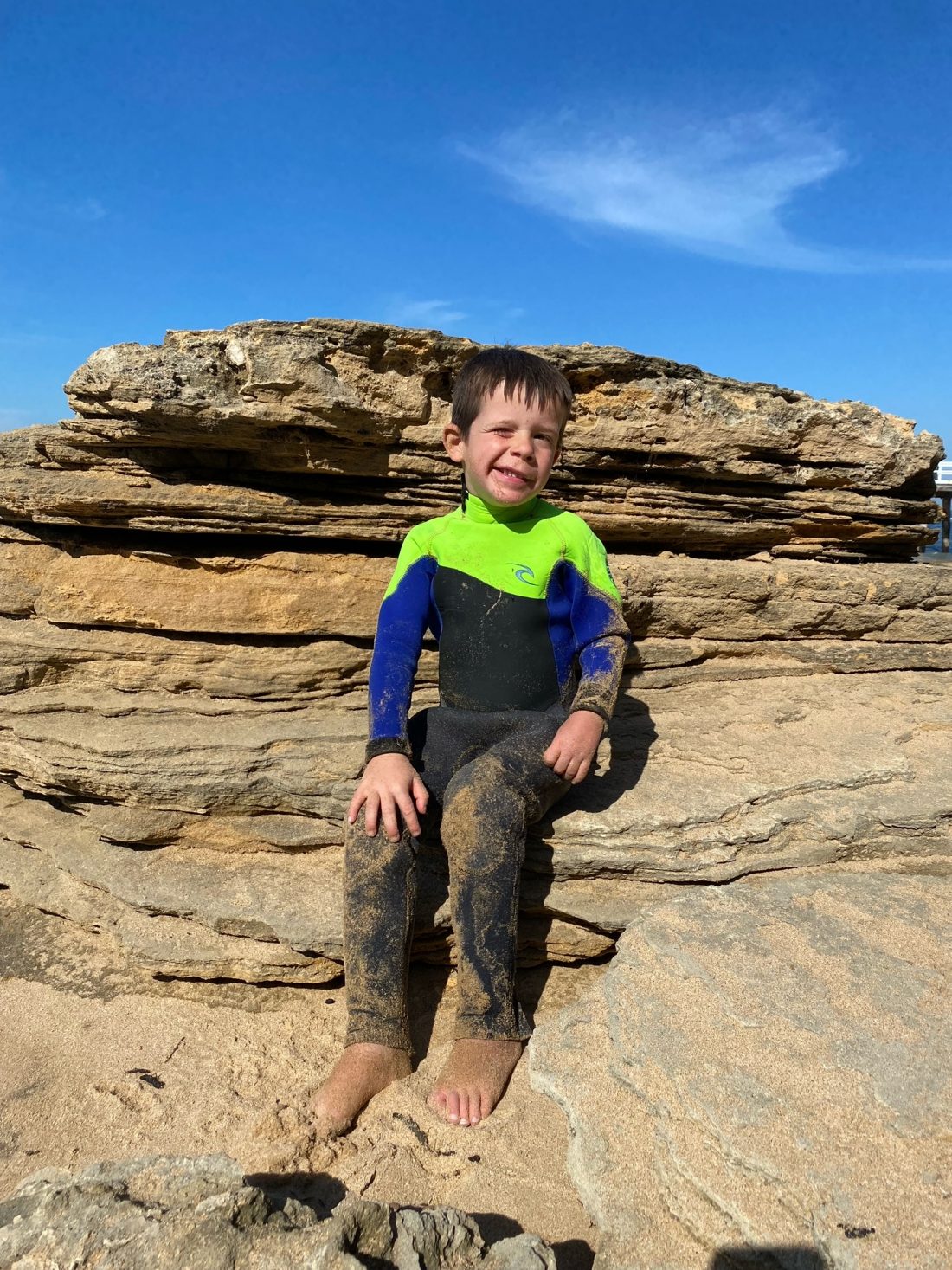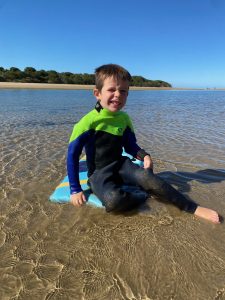
Hemi Hero: Malu
It was just days after Christmas in 2019 when one-year-old Malu began exhibiting unusual behaviours – that to his family, first looked like the signs of an overtired baby.
The extended family had gathered to celebrate, the day after boxing day, when baby Malu appeared to ‘zone out’.
“His head lulled and then his eyes jolted, it happened twice when we started to get concerned,” Malu’s mother Erin explained.
Out of an abundance of caution the family decided to take him to the nearest local hospital when Malu’s condition quickly deteriorated. Malu began having a seizure in the hospital in front of medical staff.
“We were told to head to Geelong Hospital which we knew meant it was serious. In hindsight we were luck to have had witnesses to what was happening to him, so we could describe it and get the help we needed,” Erin said.
After his initial admission to hospital and a number of tests including an EEG and an MRI, Malu was placed on a high dose of steroids.
“We were told it was infantile spasms, the seizures eventually stopped, and he was weaned off the steroids weeks later,” she said.
Then, like the rest of the world in early 2020, the family’s hometown of Geelong soon succumbed to COVID lock downs; while Malu’s seizures returned – this time presenting as focal seizures. Due to the timing, the family accessed treatment via telehealth, trialling a number of medications and dosages to no avail.
While he was incredibly active, walking climbing and happily babbling with his two older brothers, Malu was facing seizures at a frequency of once to twice a day.
“It was a hugely daunting time but strangely enough I felt that the lock down worked in my favour,” Erin said.
“My eldest had just started Prep so I was able to have them all close.
“They were our core focus and we just had to take it one day at a time. The unknown was always the scariest part.”
At 18 months old his scans revealed he had focal cortical dysplasia. It was after this discovery, during a telehealth consult with the neurologist, when Erin said the family was hit with a ‘bombshell’ – the option of a hemispherectomy for Malu.
“It was bizarre that we were discussing brain surgery just over Zoom, but those were the times. It didn’t cross our mind that ‘a big surgery’ meant something as extreme as disconnecting the right half of his brain from his left,” Erin said.
“Looking back, I kind of wish that they could have understood where we were at in his treatment, when they did finally tell us it was a really big shock. It was hard to understand what the future would look like for him.”
“We were just grateful that surgery was a possibility – there was some certainty.”
In July 2020, the 19-month-old was admitted to the Melbourne Royal Children’s Hospital for his life changing surgery.
Post operation Malu’s recovery was buoyed by his two older brothers Harlan and Jarvie who wanted to play as soon as Malu was able.
“He was very active after the surgery and then six weeks later he was walking again,” Erin said.
“He just wanted to get up and get going to play and join in with his brothers.”
Now physically active and living seizure free, Malu walks with a slight limp and works to compensate without the use of his left hand. He has also worked hard to learn how to speak all over again, having lost all the vocabulary he had gained prior to his surgery.
Now three years on, Malu’s family say he is a talkative, social and often cheeky little boy who knows just what he wants from life.
“He is so social and loves being around people and other kids,” Erin said.
“Being able to see him now do things by himself, go it alone whether that is playing or even swimming – we now have that real sense of relief.”
“For anyone who is going through something similar I would say it is always so important to follow your instincts and do what feels right for you. It feels really hard to have a voice in all of it. Sometimes and you can feel out of your depth with new information so ask questions and push when things don’t feel right.”
“Joining the support group was the best thing we did, we learnt it isn’t all bad news, there is hope out there.”

